CASA BLOGS

Back in Time- History of CASA
As India celebrates 74 years of independence from the colonial rule of Britain, we trace the growth of our seven decades-old organisation, CASA, which embodies the same ideals of equality, dignity, and liberty as our great nation. In 1947, pandit Jawaharlal Nehru asked Bishop Picket to initiate a response, in the purview of disruptions and human sufferings caused by the India-Pakistan partition. The Indian Protestant National council of churches (NCC), responded with the formation of an ‘NCC relief committee’.
Over the years, our organisation took different names, from Committee on Relief and Gift Supplies (CORAGS) in 1967 to Church’s Auxiliary for Social Action (CASA) in 1976, as it is known today. Immediate relief, rehabilitation, and long-term development have been the key aspects of our disaster response. Victims are aided with the provisions of funds, water, clothing, health care, and temporary shelter.
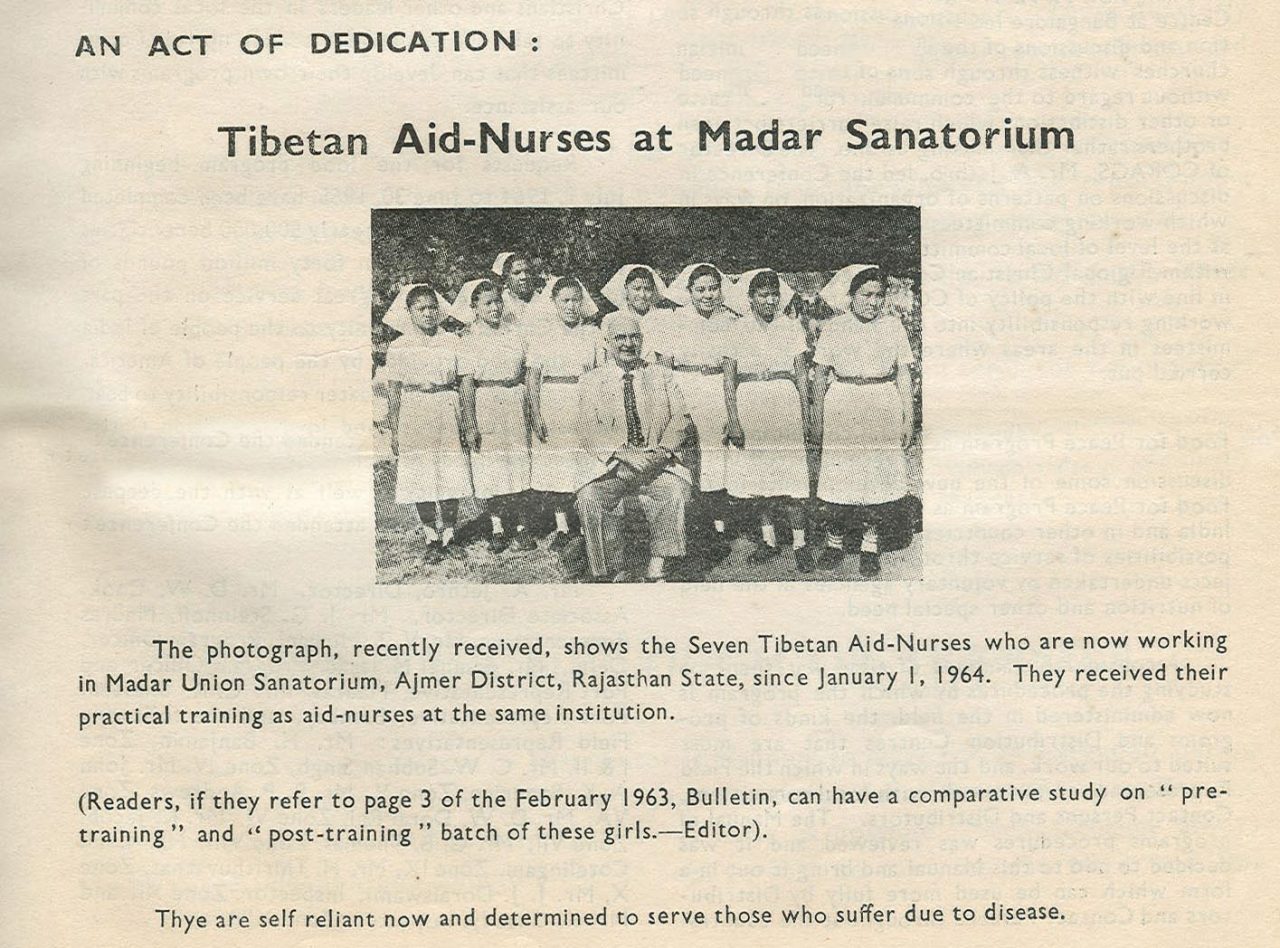
A cutout from CASA’s 1964 bulletin
The rehabilitation concentrates attention towards restoring the affected area’s equilibrium besides helping the stricken communities in recovering their means of sustenance. Immediate response and subsequent rehabilitation, in many cases, sets off the initial step to overcome widespread ravages of distress.
Our relief and rehabilitation efforts have been unfettered over the years:
1947: CASA provided refugee relief and rehabilitation at the time of painful partition of India-Pakistan. CASA has striven to preserve the principles of harmony and peace while the country was enduring the shocks of the painful changes.
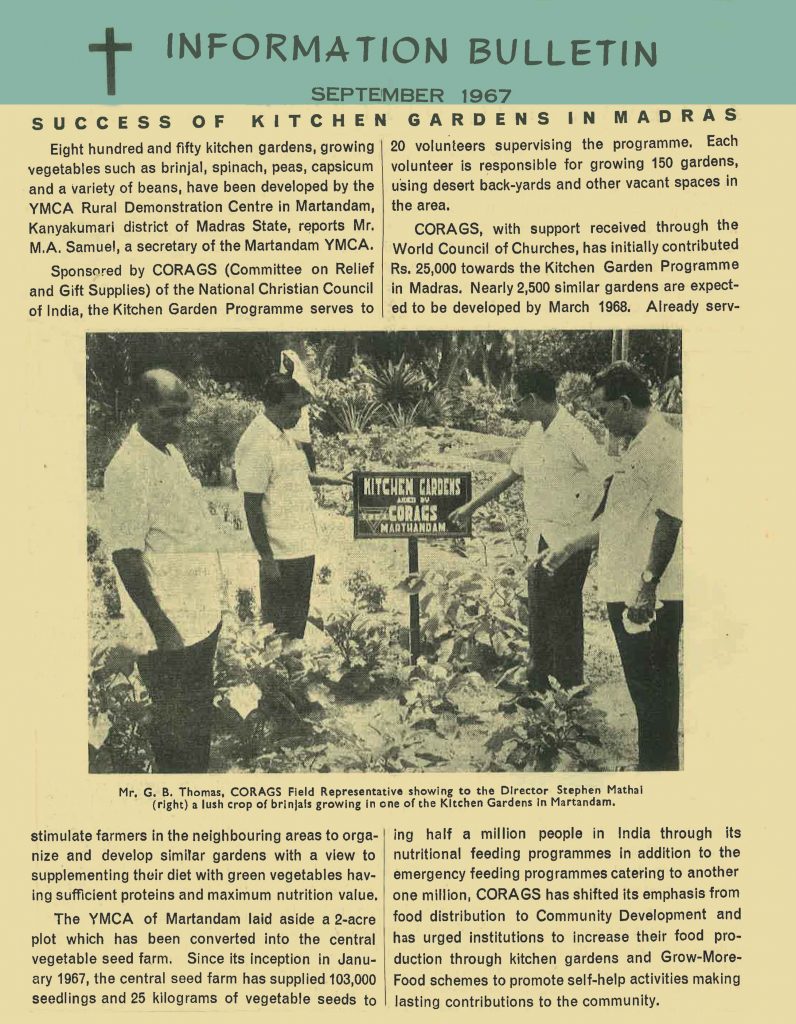
CASA initiates Kitchen Garden in 1967
1985, 1990, and 1991: Victims of floods and cyclones in Madras City and Chengalpattu district of Tamil Nadu were assisted through our relief efforts. CASA organised cooking centres, distributed food packets, blankets, and utensils.
1992: When Andhra Pradesh was ravaged by floods and cyclones, CASA distributed 1600 sets of relief items in districts of Tirunelveli, Ramanathapuram, and Kanyakumari.10 packets of biscuits with a nutrient value of 1000 calories each was provided per family.
1994: CASA distributed 654 cotton bed sheets in the flood-affected areas of Kodungaiyur and Little Mount in the Madras City (Chennai). Further, 2687 sets of relief materials were distributed in other areas, namely, Annai Sathya Nagar, Perambur, Kipauk, Shastri Nagar, Ambattur and Kasimedu.

CASA, serving the vulnerable since 1947
1998, 2000: As the country entered into a new century and era, our organisation strived towards initiating livelihood activities, advocacy programmes and securing education goals that would benefit communities in different parts of the nation.
2001: Gujarat was hit by a devastating earthquake, with a magnitude of 7.7 on the Ritcher scale. The disaster caused massive loss of lives, injuries, and public property. In the wake of this, CASA provided immediate relief and rehabilitation to assist victims of the earthquake.
2003: Studies suggest that more than 1 million cases of Lymphatic Filariasis (LF) are recorded in our country every year. It is an infectious parasitic disease transmitted by mosquitoes that causes permanent or temporary disabilities. The crippling disease is widely prevalent in Odisha, West Bengal, and other tropical states of India. CASA extensively provides medical care and communicates disease management techniques to the patients. CASA is amongst a handful of organisations, dedicated to eliminating the disease and providing patients with humane treatment and dignity.
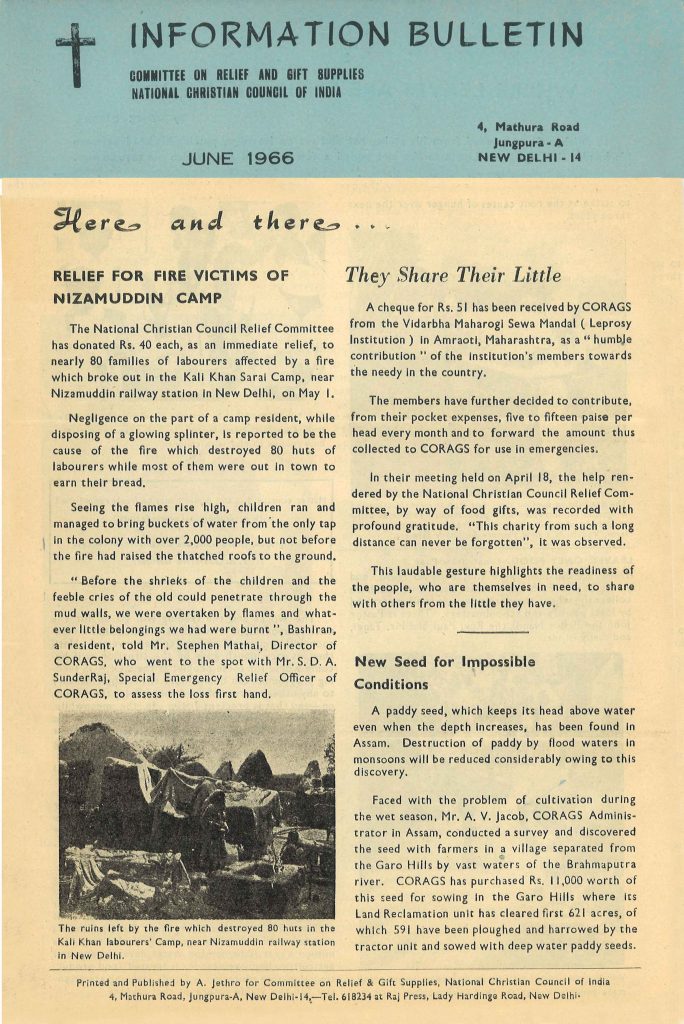
Our 1966 Bulletin page
2013, 2014: Uttarakhand was hit by multiple floods and landslides due to cloudbursts, in June, 2013. An estimate of 4,500 villages were affected, and over 5000 people were killed. In response, CASA initiated the ‘Uttarakhand disaster relief operation and rehabilitation programme’. In 2014, the state of Kashmir saw unprecedented rainfalls, triggering the worst flood in the state, since 1959. Nearly 300 people were killed and many were left displaced, out of their habitations. In the wake of this crisis, climate farmer schools and community-based organisations were inaugurated. The farmers were trained to collect agro-weather information accurately. It aimed to disseminate climatic information to minimize the adverse impacts of flood, excess rain hailstorm, and deficient rain.
2020: CASA is actively working in 23 Indian states for COVID-19 relief work. So far, We have reached out to 40,23,150 individuals in the remote regions of India that have fallen victim to the crisis. The relief programme is multi-faceted, involving awareness campaigns, distribution of ration kits, and hygiene kits to communities. Additionally, we are working on the ground to address the aftermath of cyclone Amphan.
Our four zonal offices in Delhi, Mumbai, Kolkata, Chennai, and 14 sectoral offices, working through the strength of 700 plus executives and personnel, have encouraged us to achieve a pan-India reach. We are coordinating and working together with over 500 direct and indirect partner organisations such as Madras Social Service Society ( MSSS), Building Hope through Organising the Ordinary and Marginalised in India (BHOOMI), and district authorities in over 10,500 villages. For avoiding the duplication of relief efforts, operational areas for disaster mitigation are designated with the government consultation.
CASA prioritises the promotion of sustainable livelihood options, education, gender mainstreaming, Disaster Risk Reduction and community participation in the local capacity building. CASA values the ideals that are enshrined in India’s freedom struggle and the Indian constitution. We envision a harmonised society where justice and equality shall prevail and every citizen lives peacefully, irrespective of gender, class, caste, religion, language, creed and identity.
Written by Anmol Ahuja, Intern, Communications
Edited by Kajol Tanaya, Intern, Communications and Pankhuri, Communications Associate
 Previous Blog Post Forest Dwellers & Forest – Based Livelihood
Previous Blog Post Forest Dwellers & Forest – Based Livelihood Unmatched bravery of a woman Battling for Dignity
Unmatched bravery of a woman Battling for DignityFeatured Post
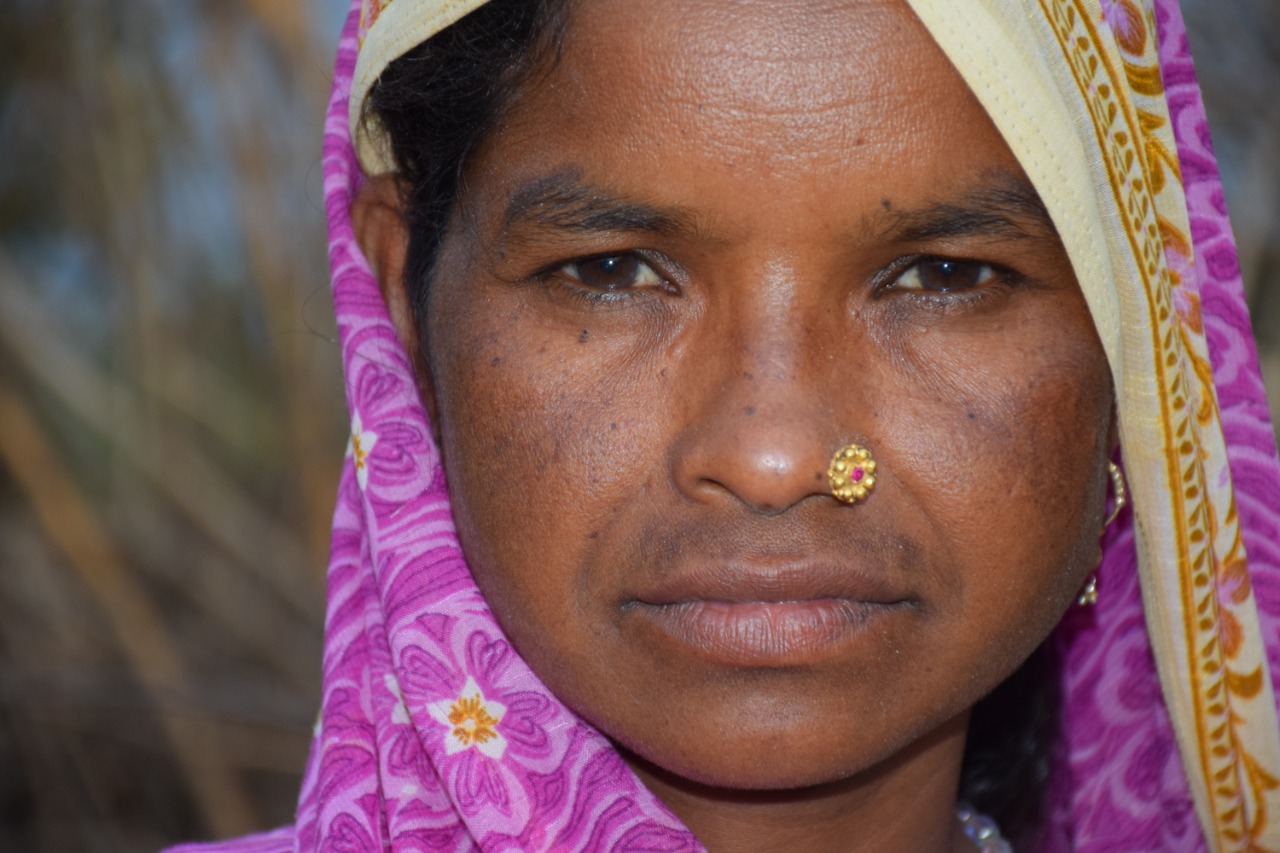
Mental Health Awareness in India: Addressing Key Challenges
8 Nov 2024
Mental health awareness is crucial in India, where millions silently struggle with mental health disorders, including depression, anxiety, and bipolar disorder. Despite growing recognition, India faces unique challenges in effectively addressing mental health issues. The stigma associated with mental illness remains a primary barrier. In Indian society, mental health issues are often misunderstood, leading to […]

Ensuring Girls’ Safety in India: A Path Toward Empowerment
20 Aug 2024
Girls’ safety in India remains a critical issue that has garnered increasing attention over the years. Despite various reforms and efforts from both government and civil society, challenges persist. From street harassment to domestic violence, gender-based discrimination continues to limit the freedom and safety of girls. While significant progress has been made in addressing these […]
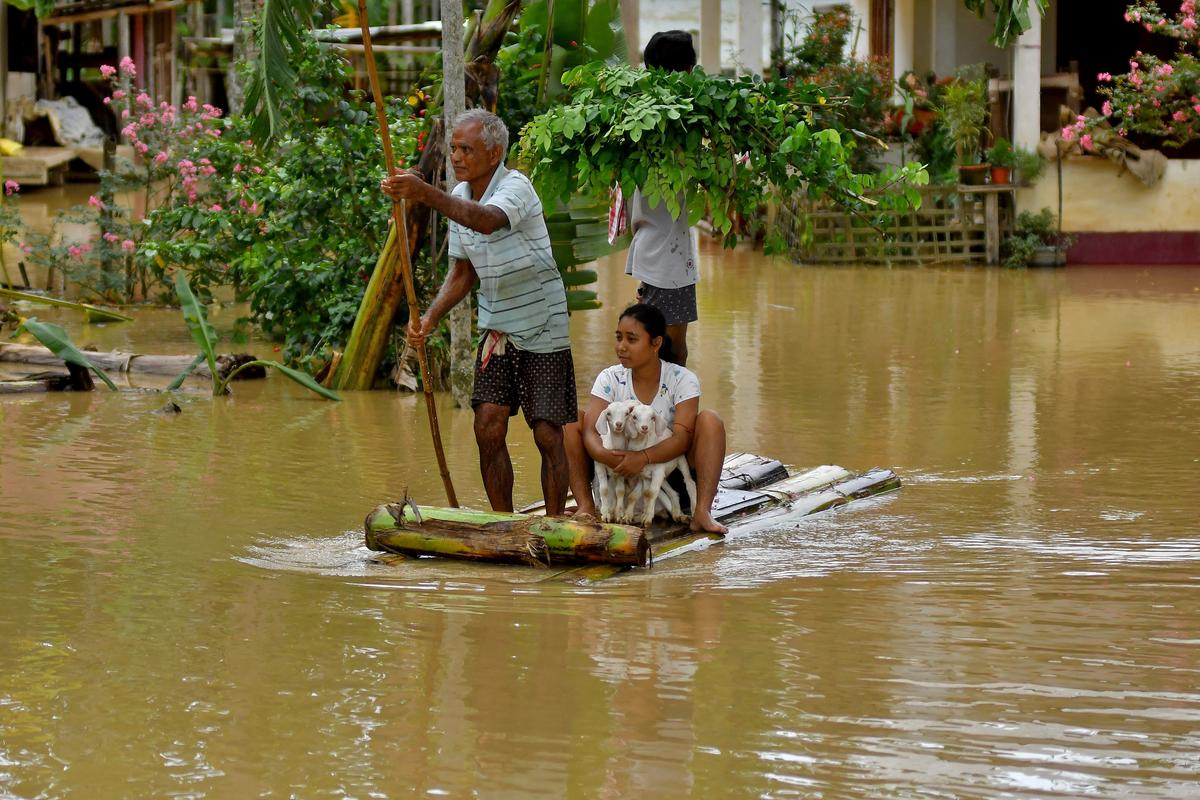
The Connection Between Monsoons and Floods in India: An In-Depth Analysis
9 Jul 2024
India, a land of diverse climates and geographical features, relies heavily on the monsoon season for its agricultural and water resources. However, with the benefits of the monsoon rains come significant challenges, particularly in the form of floods. This blog explores the intricate relationship between the monsoon season and flooding in India, providing detailed insights […]


